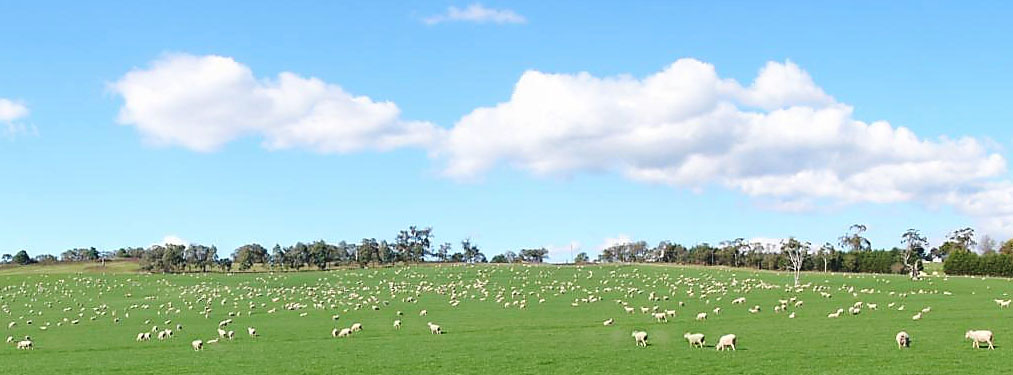
Fourth Sunday of Easter A
Reading I: Acts 2:14a, 36-41
Responsorial Psalm: 23: 1-3a, 3b-4, 5, 6
Reading II: 1 Peter 2:20b-25
Gospel: John 10:1-10
Jesus said, "I tell you most solemnly, anyone who does not enter the
sheepfold through the gate, but gets in some other way is a thief and a
brigand. The one who enters through the gate is the shepherd of the flock;
the gatekeeper lets him in, the sheep hear his voice, one by one he calls his own sheep and leads them out.
When he has brought out his flock, he goes ahead of them, and the sheep follow because they know his voice.
They never follow a stranger but run away from him: they do not recognise the voice of strangers."
Jesus told them this parable but they failed to understand what he meant by telling it to them.
One commentary I have read suggests that it is a mistake to call this 'Vocations Sunday' with focus on recruitment of 'shepherds' on this Sunday because it takes the focus off Jesus who declares himself the true shepherd as distinct from the false shepherds of his time and of every age. The time after Easter is entirely devoted to the question, who is Jesus, and what is our relationship with the resurrected Jesus - or how do we in the here and now relate to the Christ.
Another thought, this time my own. For what it’s worth, my response to the title Good Shepherd has always been similar to my response to my favourite teddy bear of old, a warm fuzzy feeling, possibly on account of that ubiquitous image of the kindly man with the lamb slung across his shoulders. So I checked out the use of ‘good’ in our language today. First came the term ‘good horseman’ - a person skilled in handling a horse; then ‘good gardener’ - one who knows when and where to put in their plants; ‘good cook’ - very efficient and not always patient and kind; ‘good doctor’ - probably rather taciturn as they focus on the evidence in order to form a correct diagnosis; finally ‘good parent’ - one who can balance warm and tender love with firm guidance and discipline; and so on.
Each of these will have its own descriptor of ‘bad’, but mostly they will include lack of empathy, clearly understood by my generation in the ‘good horseman’ context. As a kid I could observe the people who were given the title, and compare them with those who were not given that credit. Empathy and respect, and skill which is confident authority based on knowing the animal, are perhaps the key components.
In a second metaphor that has been roughly coupled with the first, Jesus says he is the gate to
the sheepfold:
'I tell you most solemnly,
I am the gate of the sheepfold.
All others who have come
are thieves and brigands;
but the sheep took no notice of them
I am the gate.
Anyone who enters through me will be safe:
he will go freely in and out
and be sure of finding pasture.
The thief comes only to steal and kill and destroy.
I have come so that they may have life
and have it to the full.
Anyone who enters through me will be safe: he will go freely in and out and be
sure of finding pasture. Three things: safety - going freely in and out - sure of finding food.
I'm surprised to realise that I have never examined this image before. It speaks of trust. The gate gives open access - you don’t have to scramble over the fence like a thief. We are free to go in and out - in for safety during the night, out to find food, in again at the end of the day to find rest - going freely. I wonder does it work in reverse: freely in and out - in for spirit food, comfort and strength, out for work in the world where undoubtedly there are many who are not particularly committed to saying and doing the truth in love, as well as ravenous wolves. Jesus is an open gate. I wonder does our present church live up to that image of Jesus. What did Jesus have in mind when he compared himself to an open gate???
Commentators say that the false shepherds were the pharisees and the temple authorities of
his time. He is extremely harsh in his criticism of them, calling them thieves and brigands:
The thief comes only to steal and kill and destroy.
And then that wonderful definition of his purpose: I have come so that they may have life and
have it to the full. Life in its fullness. Many people today are discovering the voice of conscience calling them to break through the paralysing inhibitions implanted by people who would steal their lives away. They experience a call to be true to themselves, to trust the shepherd who has proven himself to be a ‘good’ one, and learn with him to live the fullness of life. Going freely in and out.
Good commentaries can be found at these sites:
http://liturgy.slu.edu/4EasterA051511/main.html
www.catholicireland.net/liturgysacraments/sunday-homily-resources-year-a